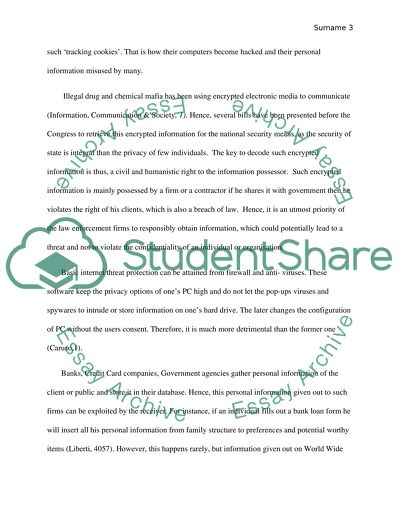Cite this document
(“The End of Privacy Research Paper Example | Topics and Well Written Essays - 1500 words”, n.d.)
The End of Privacy Research Paper Example | Topics and Well Written Essays - 1500 words. Retrieved from https://studentshare.org/journalism-communication/1491989-the-end-of-privacy
The End of Privacy Research Paper Example | Topics and Well Written Essays - 1500 words. Retrieved from https://studentshare.org/journalism-communication/1491989-the-end-of-privacy
(The End of Privacy Research Paper Example | Topics and Well Written Essays - 1500 Words)
The End of Privacy Research Paper Example | Topics and Well Written Essays - 1500 Words. https://studentshare.org/journalism-communication/1491989-the-end-of-privacy.
The End of Privacy Research Paper Example | Topics and Well Written Essays - 1500 Words. https://studentshare.org/journalism-communication/1491989-the-end-of-privacy.
“The End of Privacy Research Paper Example | Topics and Well Written Essays - 1500 Words”, n.d. https://studentshare.org/journalism-communication/1491989-the-end-of-privacy.


